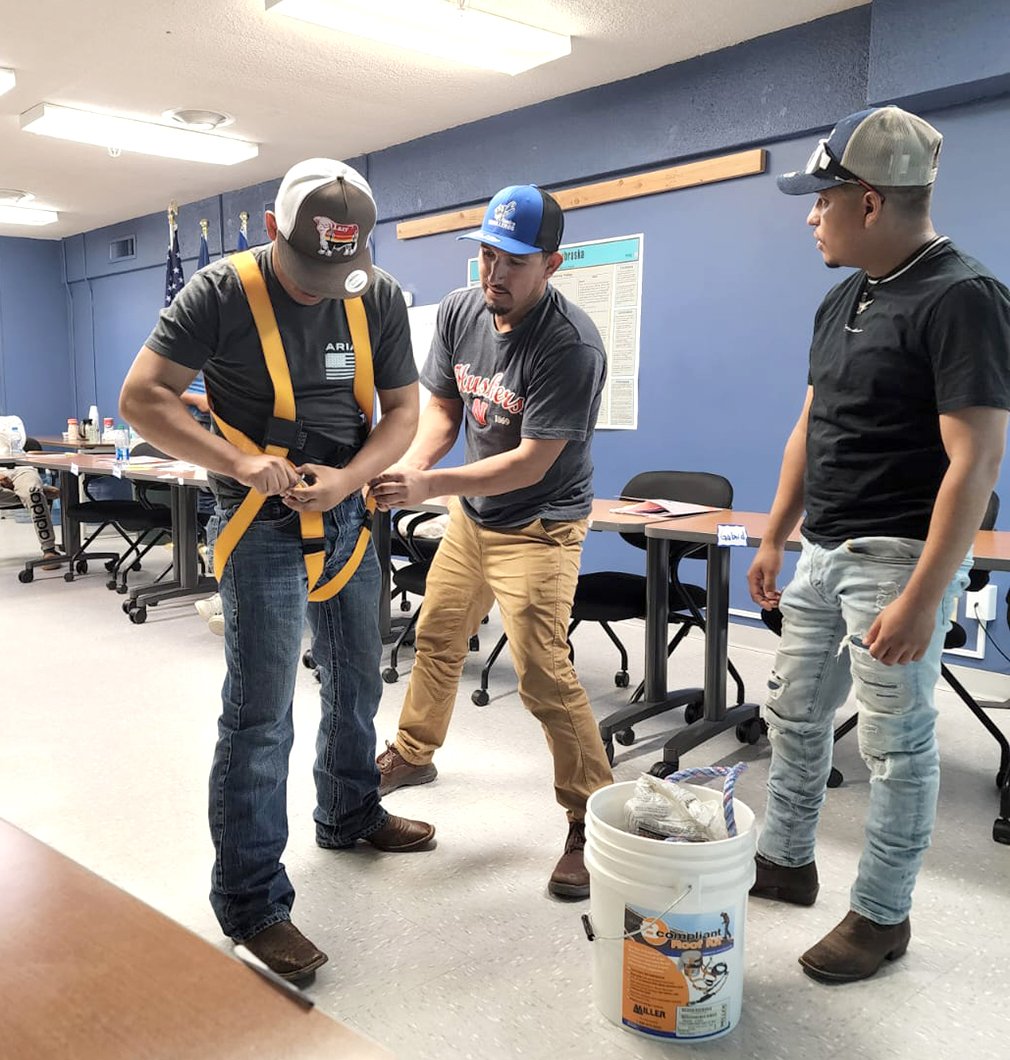
Creating Healthy and Safe Workplaces for All
Health & Safety Training Institute
A program of the Heartland Workers Center, the Health & Safety Training Institute is committed to promoting safe and productive work environments in the Heartland. Our OSHA-authorized trainer leads classes in both Spanish and English to ensure that employers and their employees fully understand regulations while developing the knowledge and skills they need to be safe at work.
Is your organization interested in learning more?
Request a training via the form below or send us a message at hsti@OSHABilingualTraining.org.

We Offer
10-hour or 30-hour trainings customized by industry and business
An OSHA-authorized trainer who utilizes techniques that are proven to engage the participants through hands-on exercises, real-life scenarios, and small group discussions
Classes available in Spanish and English
Flexible training held during employees scheduled hours at either the business’ worksite or at the Heartland Workers Center training facility
Affordable pricing and discounts
Industry Trainings
Trainings are customized for businesses in several industries including, but not limited to construction, cleaning, general labor, etc.
Construction Industry Topics Include:
Focus Four in Construction:
Caught In-Between
Fall Protection
Struck-By
Electricity/Electrocution
Health Hazards in Construction and Hazard Communications
Personal Protective Equipment
General Industry Topics Include:
Walking and Working Surfaces
Exit Routes, Emergency Action Plans, Fire Prevention Plan, and Fire Protection
Electrical
Handling Materials
Hazard Communications

“I liked this training because my employees enjoyed it. They asked a lot of questions that were answered and explained in detail.”
Peter
Food Industry Plant Manager
MEET THE TRAINER
Penélope León
Penélope León, our OSHA-authorized Health & Safety Trainer, began working with Heartland Workers Center in June 2014. She has provided more than 800 hours of training throughout the region in both English and Spanish. She has been working in workplace safety and health for more than 20 years for a variety of manufacturing, construction, and oil services companies.
Born and raised in Mexico City, Mexico, Penélope moved to the United States in 1991. She has a B.A. in Communications with a major in Journalism from the Universidad Ibero Americana in Mexico City and is a proud Mexican and American citizen.
Penélope has a deep passion for helping workers better understand their rights and responsibilities, knowing that it is the first step for having a productive and satisfying place of work. She also believes that workplace safety and health are important in order for workers to be productive and return home happy and healthy to their families.

Request a Training
Since 2012, we have trained more than 750 workers in the Heartland. Request a training by contacting us at 402.933.6095 or hsti@OSHABilingualTraining.org.
You can also complete this form and one of our team members will contact you within 48 hours.

“We tried on the dust masks and the fall arrest system, and we practiced with the questioner.”
Oscar
Construction Worker
The Changing Face of the Workforce
Latinos and Latinas are an important part of our communities in the Midwest. Over the past two and half decades, Latinos have become a primary engine for growth in Nebraska, with the current population expected to triple by 2050.
Latinos and Latinas also work in some of the most challenging and labor-intensive industries, such as construction, manufacturing, food service, healthcare, and cleaning services. The type of job or industry is a leading factor as to why Latinos and Latinos experience a high rate of injury, illness, and death on the job, other factors.
Many Latino immigrants come from countries where workplace safety (or safety in general) is not a priority and is not integrated well into the culture. Government agencies that should enforce these regulations are ineffective or non-existent in other countries. And unlike many U.S.-born citizens who learn about safety from a young age (i.e., the use of car seats, seatbelts, and bike and motorcycle helmets), the “culture of safety” is less prominent within Latin American. In addition, educational levels, language proficiency, and lack of access to training in native languages contribute to high levels of injury, illness, and fatality.
The Health & Safety Training Institute team understands Latino and immigrant cultures. We provide training that is accessible so that workers understand the safety regulations in the U.S. that pertain to their jobs and can prevent injuries.









